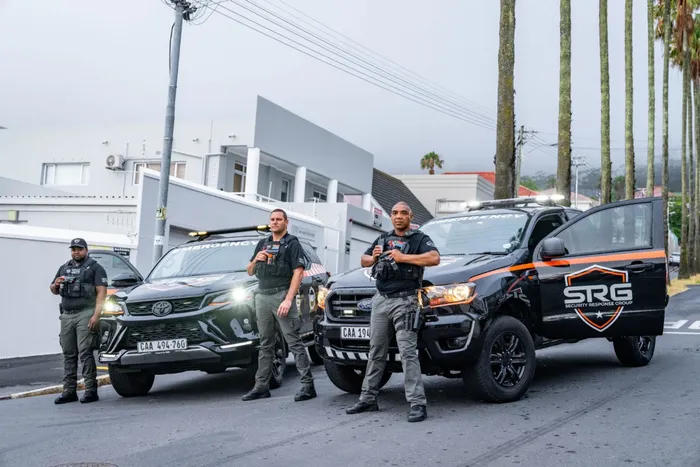Data-driven response to crime will improve safety and security in Cape Town

Improve security in your community by making the switch to SRG Security today, via www.srgsecurity.co.za

SPONSORED CONTENT
By Michael Bracale Jnr, CEO at SRG Security
The City of Cape Town is home to everything anyone could ask for in an African metropolis. It captivates tourists from all over the world with its undeniable charm, natural beauty, exquisite cuisine, and wildlife, providing visitors with an opportunity to immerse themselves in our vibrant culture.
While people from all around the world enjoy the wonders that stem from their holidays to Cape Town, it is the local residents that truly appreciate this city the most. We make full use of our mountain trails, exercise along the promenade, enjoy relaxation on local beaches and venture out to the wineries. And while there is a clear, collective appreciation for our city, there is an equally strong concern among us regarding the dangers of opportunistic and violent crime in Cape Town. Yes, we do get to live in paradise, but unfortunately, predators and thieves are making a living here too.
CNN recently released an article on the soaring crime in our country, indicating that carjackings have more than doubled in the past decade, while other serious crimes are also on the rise. In 2022-23, recorded cases of kidnapping increased by 41.7%, while attempted murders rose by 13.7%.
While these figures reflect a national trend, the Western Cape has not been immune to this spike post-Covid-19.
The latest crime statistics for our province have seen some improvement - although recent reports by local government have confirmed a 10.4% increase in contact crimes, a 22.5% increase in common robbery, and burglaries at residential premises have increased by 7.2%.
Increasing police visibility in the province would significantly assist in decreasing crime levels - without a doubt.
That being said, we as citizens need to understand that politicians and our local government can only do so much with the resources they have - expecting their situation to change sooner rather than later takes a rather disempowering approach to this crisis. Instead, we should seek innovative solutions to improve our safety and security in a concerted attempt to fill the glaring gap in our government’s capacity and resources today.
There are two things we can do immediately to address this situation in the City of Cape Town – first and foremost, we need to understand that police visibility and security personnel directly affect the level of crime in our communities. And second, we need to use that information with the latest in crime intelligence technologies to build a data-driven response to this crisis.
According to the Policing Needs and Priorities (PNP) report for 2023/24, the police-to-population ratio in the Western Cape varies from precinct to precinct. The report was able to confirm that there is a direct correlation between the rate of violent crime and the police to population ratio across different communities.
The report, compiled by the Department of Community Safety and Police Oversight, found that the precincts with the highest number of murders in the 2021/22 financial year were those with the lowest police-to-population ratio.
It highlighted the areas in which policing resources should be focused, and added that police staff had declined in our province in recent years, from a high of 22 011 in 2011/12 to 18 867 in 2021/22 – a decrease of more than 14% over the last decade. The PNP report stated that the “real decline in police numbers is worsened by the fact that the population in the Western Cape has increased” –- by up to 34.5% over the same period.
With this population increase and declining police resources, citizens can fight crime from the comfort of their homes by supporting highly-qualified, professionally certified, private security response groups. This could take the form of private security companies or community-based organisations like neighbourhood watches working to increase the visibility of volunteer responders in certain areas where crime runs rampant and unabated.
While additional boots on the ground and response vehicles on the road will help, that alone will not be sufficient to address crime trends if we are not using the latest technological advancements to identify where the problem areas are situated. The Western Cape MEC of Police Oversight and Community Safety, Reagan Allen, supports this notion and has repeatedly argued that the solution to our criminal crisis must include a data-driven response – specifically when it comes to the deployment of SAPS officers.
Using all that modern technology has to offer, we can capitalise on proactive security measures whilst capturing data with intelligent incident reporting systems capable of highlighting patterns of criminal activity in our city. This data can empower us to collectively allocate resources intelligently and more effectively.
One thing is certain -–we do not have to remain at the mercy of criminals in our beloved city. Together, we can leverage private, public, and community-based resources to make our city safer for all.
For more information, visit www.srgsecurity.co.za